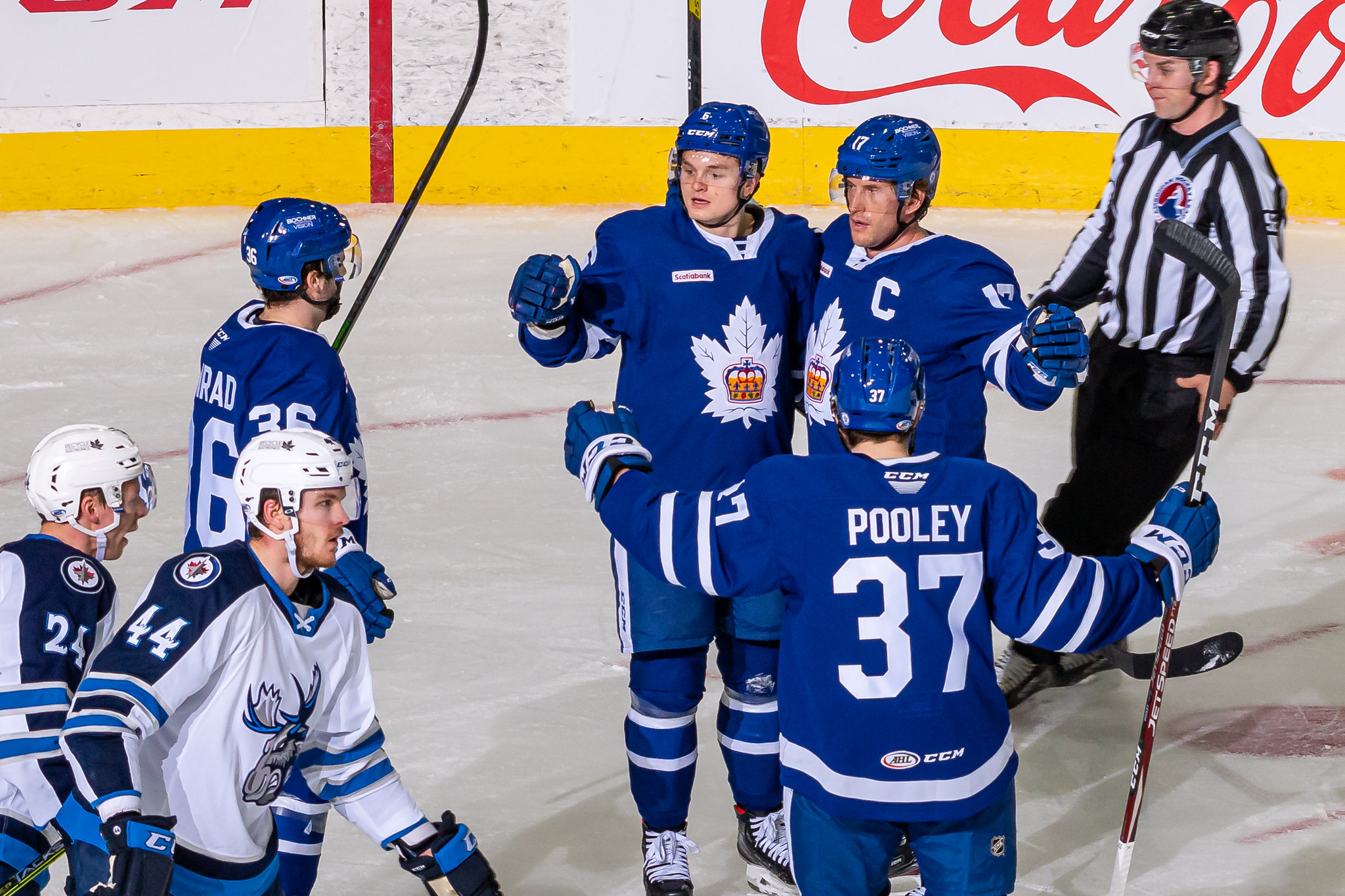Toronto Marlies captain Rich Clune is retiring from hockey and will immediately join the Toronto Maple Leafs development staff, the club announced on Thursday.
“Rich is in a class of his own when reflecting on the impact he has made on the Toronto Marlies,” said Ryan Hardy, the Maple Leafs‘ Assistant General Manager in charge of Minor League Operations. “He is celebrated by all those who played and worked with him for the professionalism he exhibited day in and day out, the contagious energy that extended from the gym to the ice and the compassion he demonstrated for his teammates and all members of this club. We’re thrilled to have him join the player development staff and to continue delivering his invaluable support and guidance within our organization.”
The signing of Clune to an AHL contract in the summer of 2015 went largely unnoticed. Having gone public about his substance abuse and mental health issues, it felt like a second opportunity for a player who suited up in 120 NHL games split between the Los Angeles Kings and Nashville Predators. By October 29, 2015, Clune had signed to a two-year NHL contract by the Toronto Maple Leafs.
The left-winger spent 19 games in the NHL during his first season in Toronto in the rebuilding season of 2015-16. That would turn out to be his last time in “the show,” but his influence in Toronto extended far beyond that.
Throughout his tenure in Toronto, Clune spent most of his time with the Marlies, where he collected 25 goals and 34 assists in 256 regular season games and recorded five points in 20 playoff contests, capturing the Calder Cup championship with the Marlies in 2018.
The 35-year-old wore an ‘A’ for five straight seasons with the Marlies but acted as if he were the captain. His work ethic on and off the ice had a huge impact on future Leafs such as William Nylander, Kasperi Kapanen, Zach Hyman, and Connor Brown.
Clune took the time to make sure any new additions to the team were welcomed, whether that was a reassignment from the NHL, a trade, a signing, or a callup from a lower level. Conor Carrick, on his podcast “The Curious Competitor,” shared a story of Clune reaching out to him after he was sent down to the Marlies. Staying in a hotel in a new city with not much going on, Clune took him out for a lunch at one of his favourite sushi restaurants — a small act but one that had a memorable impact on the defenseman. It was a deed repeated by Clune on numerous occasions during his time in Toronto.
Clune became Toronto’s captain in 2020, a role he would hold for two seasons before his retirement. Becoming the ninth captain in team history was an honour the Toronto native did not take lightly. At the time of his appointment, an emotional Clune called it, “the best thing that’s ever happened to me… My decision to come here six years ago was the best decision I’ve ever made in my career.”
Sheldon Keefe plainly stated the obvious after the announcement was made: “He’s been the unofficial captain of the Marlies really for as long as he’s been there.”
The length of Clune’s tenure in Toronto is something of a rarity in the modern-day American Hockey League. Very few players now stick it out in the AHL for as long as Clune did — and certainly not with one team. The veteran rule, a focus on developing prospects, and the opportunity to earn good money in Europe all adds up to players moving around more often.
After his retirement from playing, Clune is ranked fifth in all-time games played for Toronto (256). He is just two games behind former Captain Ryan Hamilton, with Korbinian Holzer, Greg Scott, and Alex Foster the only other players to have lined up on more occasions.
One record that Clune does hold in his retirement is for all-time Marlies penalty minutes. A total of 510 eclipses Kris Newbury (475), and Clune dropped the glove on 43 occasions.
There have been some memorable moments for Clune in Toronto — no more so than his speech the day after the Toronto Marlies won their first-ever championship. The speech to indicate he was sticking around in Toronto — stating it would take a wrecking ball to pry him away — brought raucous cheers from the fans in attendance and his teammates on the stage.
There have been moments on the ice, too, and not just with his fists. Two come to my mind instantly.
In a random road game against Wilkes-Barre Scranton Penguins in December 2015, Toronto trailed 3-0 in the third period, and consecutive short-handed goals against the run of play got the Marlies within one of tying the game. Clune then finished the comeback, picking up an errant pass in the defensive zone and showing a great turn of speed before delivering a deft finish to tie the game at 3-3. Toronto eventually prevailed in a shootout.
The 2016 Game 7 winner against Albany stacks up highly among the fan-favourite memories of Clune. With 2:30 remaining in regulation, the winger reacted first to a rebound from the backboards to slot the puck by Scott Wedgwood. In what was an ill-tempered series to say the least, it was fitting that Clune scored his only goal of the post-season in such dramatic fashion.
Clune’s reach stretches beyond on-ice achievements. There were his candid and sometimes hilarious interviews, but more importantly, the forward was a Marlies’ favourite who consistently made time for fans regardless of the situation. His work around mental health awareness and breaking down the stigma not only helped himself but others across the hockey world.
Helping him in his recovery has been throwing himself into his activities outside of the sport. Acting has become a passion, with Clune receiving credits in three films to date. Two years ago, he released a documentary about his substance abuse issues called “My Name is Dicky” (buy or rent a copy here). It’s a raw account of his struggle, which had him teetering on the edge of life fighting to survive.
Clune will begin his new role in player development this month and report to Assistant General Manager, Hayley Wickenheiser. Congratulations to Clune on a great career and the beginning of a new chapter with the organization.
































